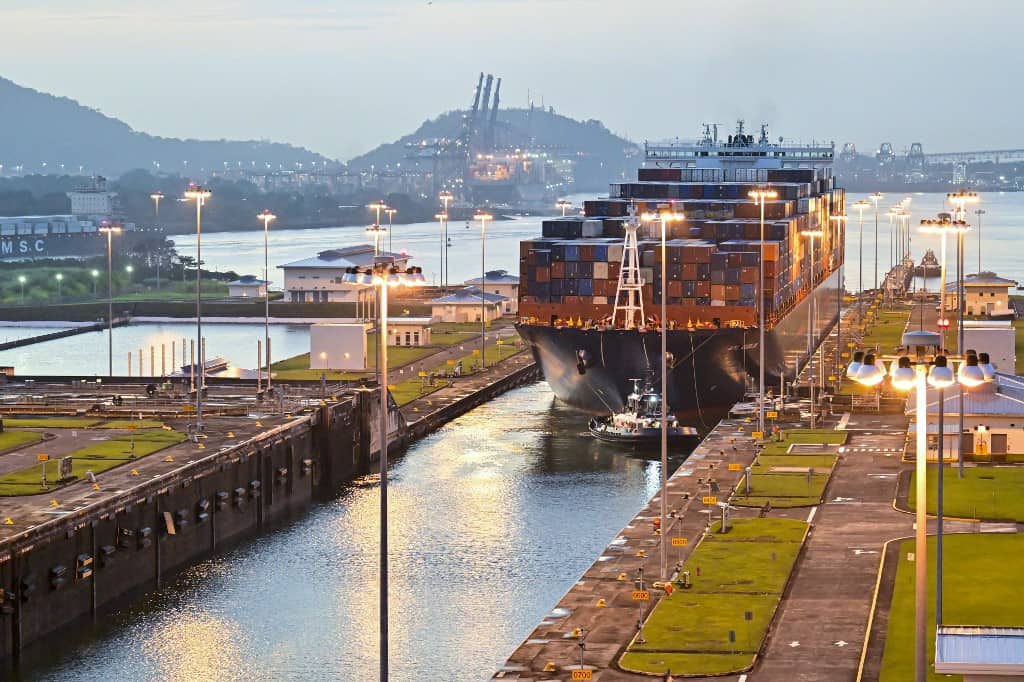U.S. troops will be allowed to deploy in areas adjacent to the Panama Canal, according to an agreement signed between the two nations—a significant concession to President Donald Trump, who has been determined to regain control of the strategic interoceanic waterway. The Panamanian government insists these are not military bases, a sensitive issue in the Central American country, as it recalls the era when the United States maintained an enclave with troops before handing over the canal to Panama on December 31, 1999.
Under the agreement, U.S. military personnel will be able to use “authorized” facilities and areas for “training,” “exercises,” and other activities, as outlined in the document signed by Panama’s Security Minister, Frank Ábrego, and Pentagon chief Pete Hegseth, who visited Panama this week.
The security pact includes photos of the authorized facilities, which encompass two naval air bases and an airport, located in areas previously occupied by U.S. military bases in the Canal Zone enclave. Since returning to power in January, Trump has threatened to “reclaim” the maritime route built by the United States, arguing it is under “Chinese influence.”
“We’re taking back the canal. China has had too much influence (…) together with Panama, we’re kicking them out, sir,” Hegseth told Trump on Thursday in Washington, briefing him on the agreement and the results of his visit. The three-year agreement, which can be extended, stipulates that the facilities remain the property of the Panamanian state and will be used jointly by the security forces of both countries.
Unacceptable
While visiting Lima on Thursday, Panama’s President José Raúl Mulino stated he rejected the Pentagon’s attempts to include terms like “permanent military presence,” “military bases,” and “territorial concessions” in the agreement. “That is simply unacceptable,” Mulino said, noting that he sent back “four versions” of the agreement drafted by the U.S. Department of Defense for this reason.
“You want trouble, (…) for the country to erupt?” Mulino recounted telling the Pentagon chief. Amid the tensions, Mulino’s government revealed that the United States removed a phrase recognizing Panama’s “inalienable sovereignty over the canal” from the English version of a joint statement. On Thursday, Panama requested Washington revise the statement to include it.
The canal is a source of national pride. Panama’s laws prohibit the establishment of foreign military bases, and the country dismantled its army following the U.S. invasion in December 1989 to capture former dictator Manuel Antonio Noriega, accused of drug trafficking.
Betrayal of the Homeland
During his visit to Panama, Hegseth had already raised the possibility of “reviving” a “military base,” sparking discontent in the country. Small groups of workers protested early Thursday, chanting slogans like “No bases.” “What’s happening here is a setback to national sovereignty. The Panamanian government’s actions are a betrayal of the homeland—they’re sellouts and should be judged,” said Saúl Méndez, a prominent union leader.
Foreign Minister Javier Martínez-Acha insisted Thursday that the agreement with the United States respects Panama’s Constitution and the canal treaties. “Not a single centimeter of sovereignty has been ceded. The agreement aims to establish broader cooperation on canal defense in case of tangible threats,” Martínez-Acha said.
The United States views the operation of two ports at the canal’s entrances by Hong Kong-based Hutchison Holdings as a “threat” to its security. Amid pressures, Panama conducted an audit that found Hutchison’s subsidiary breached its concession contract.
Hutchison announced a month ago that it would sell the concession of the two ports to a U.S. consortium, but the deal has yet to materialize due to an investigation by Chinese regulators.






